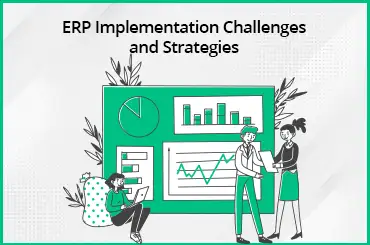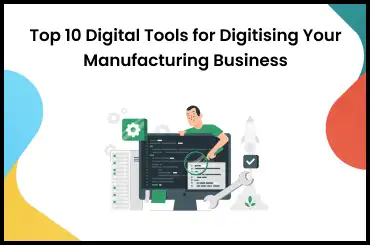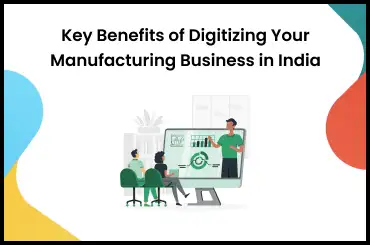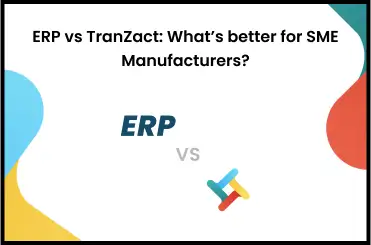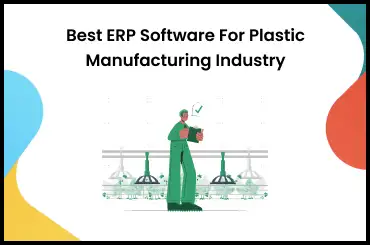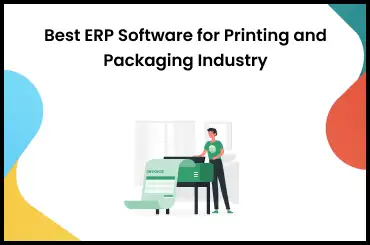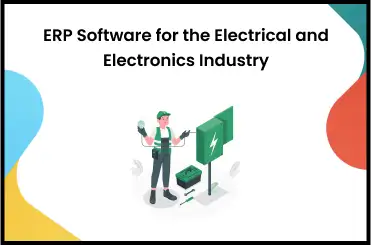It's crucial to know who are the primary users of ERP systems, whether you are running a manufacturing, healthcare, construction business or any other multi-functional business. ERP systems or Enterprise Resource Planning systems are considered indispensable for the working and management of several types of businesses due to their useful functionalities.
So, knowing their users helps you to understand how you can better implement ERP systems for daily functioning. Stay tuned to know more about primary ERP users.
Who Are the Primary Business Users of ERP System?
The primary users of ERP systems are the ones who understand the importance of a well-managed business to scale to new heights. Most businesses involve management and organization, and their success depends immensely on these vital aspects.
Any business house with a structure must implement the ERP system and its features to automate processes. Business efficiency will help you go many steps further in securing new customers for your business.
This software is not limited to one specific type or size of business. It can conveniently be used for any type and size of business be it a medium-sized or small-sized business. The software significantly helps to reduce overhead costs by saving time that would otherwise be spent on complex manual procedures.
Hence, ERP software is being used for various business domains and for numerous applications. Next, we will discuss who are the primary users of ERP systems when it comes to various industries.
Who Are the Primary Industry Users of ERP System?
Each industry has certain specific needs, and the beauty of an ERP system is that it can suitably modified. Also, you can choose only those modules or features that your business needs.
The primary industry users of ERP systems include the education sector, finance and accounting, healthcare industry, production and manufacturing, agriculture and farming, retail and commerce, building and construction, business intelligence, professional services and more.
Who Are the Primary Business Users Type in the ERP System?
ERP system users are categorized into tiers based on business size, complexity and scalability. Each ERP tier offers business value based on where your business is in terms of scale. The primary business users type in ERP systems are:
Tier 1 - Tier 1 ERP is used by multinational companies, big corporate houses and also large government organizations. They can be easily customized and are most suitable for multi-location and international businesses. However, these ERP systems are very expensive and do not suit SME businesses.
Tier 2 - A Tier 2 ERP system is ideal for those who have a slightly limited budget and yet need to implement ERP solutions in their business. This is a comparatively smaller ERP system as compared to Tier 1, but it does have certain features of Tier 1 ERP.
Tier 3 - Tier 3 ERP systems are implemented mostly by small and mid-sized manufacturing businesses as it fits their budget and offers all the functionalities they need. This needs just a couple of weeks to six weeks for implementation and is quite easy to learn.
Who Are the Primary Users of ERP System With Respect to Technology?
The primary users of an ERP system with respect to technology are the IT department and the business users on the other end of the spectrum.
IT department
The information technology (IT) department is responsible for the implementation, maintenance, and support of the ERP system. They are involved in the technical aspects of the system, such as installation, configuration, maintenance and customization of the software. They also ensure that the system is secure, reliable, and available to the business users.
Business users
The business users are another set of primary users of the ERP system. They are the ones who use the system to carry out their day-to-day activities, such as processing transactions, generating reports, and analyzing data. Business users can include various departments such as finance, accounting, human resource, supply chain, manufacturing, and sales.
In addition to the IT department and business users, other stakeholders such as senior management, external vendors, and customers may also interact with the ERP system. However, their usage of the system is usually limited to specific functionalities, such as accessing reports or placing orders.
Implement ERP Systems for Business Success
Anyone who desires to have better control over their business processes and workforce should go for an ERP system. Ascertain your business needs and budget; and go for the best fit from options that include industry-specific ERP systems, ERP for small businesses, cloud-based ERP, custom ERP and more.
You can explore the features and functionalities of TranZact, a cloud-based automation software for seamless business automation, enhanced efficiency, and a boost in profits. It offers cloud ERP solutions that are designed specifically for SME manufacturers. It focuses on streamlining sales, inventory, quotations, business intelligence, production and reporting for SMEs.
FAQs on Primary Users of ERP Systems
1. What are the benefits of ERP systems?
ERP systems have created a stir in the industry with their innovation and efficiency. The benefits of using ERP systems are numerous. They include an effective functioning of business by streamlining procedures, allowing sharp focus on the business and better decision-making through transparency. It also helps in improved coordination across departments and better productivity. With so many benefits you can well imagine why there are countless primary users of ERP systems across several domains.
2. What are the key components of ERP systems?
The key components of an ERP system are human resources, customer relationship management, business intelligence, supply chain management, inventory management and accounting and financial management.
3. What are the types of ERP systems?
The various types of ERP systems are industry-specific ERP, small business ERP, and custom ERP solutions. ERP systems are also categorized as on-premise ERP, cloud-based ERP, and hybrid ERP, which means a mix of both on-premises and cloud ERP systems. You can assess the features of these ERP systems and choose the one that meets your business needs.








